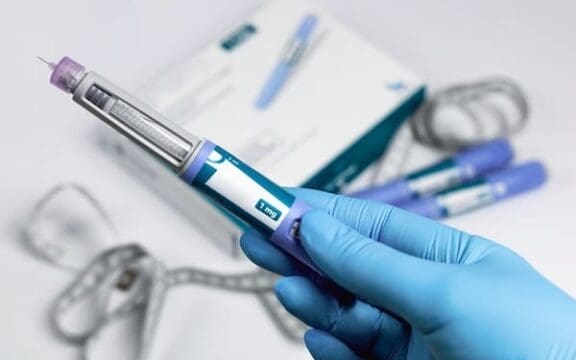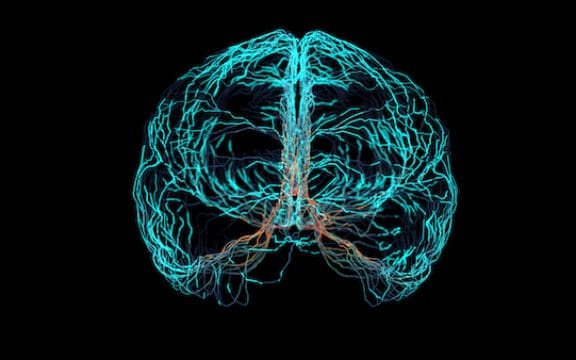Antidepressants have brought relief to millions of people struggling with major depressive disorder (MDD). They can restore energy, stabilize mood, and allow patients to reclaim parts of their lives that Depression had taken away.
But for some, the benefits fade. After months or years of improvement, symptoms creep back even while continuing the same medication at the same dose. When antidepressants stop working, this phenomenon is often called antidepressant “poop out.” In medical research it is sometimes referred to as antidepressant “tachyphylaxis” or “breakthrough depression.”
So how common is “poop out,” and how can it affect your wellbeing?
What Is “Poop Out?”
“Poop out” describes a situation in which an antidepressant that once worked well stops being effective over time. Patients may not always experience a full depressive episode; instead, they often notice subthreshold symptoms: low energy, diminished motivation, disrupted sleep, or a “foggy” mind. Some report emotional blunting, where life feels muted and less rewarding.
The Rothschild Scale for Antidepressant Tachyphylaxis (RSAT) was developed to measure “poop out.” Specifically, this scale examines telltale domains such as energy, motivation, cognition, sleep, weight change, sexual function, and affect. This helps clinicians differentiate it from a typical relapse, which usually brings back all the hallmark symptoms of Depression.
How Common Is “Poop Out”?
Unfortunately, research suggests that this sort of “poop out” is not exceptionally rare. In randomized maintenance trials up to three years, between 9% and 57% of patients experienced recurrence while still on medication. A study published in Journal of Clinical Psychiatry found that approximately 25% of unipolar MDD patients experienced antidepressant “poop out,” while Johns Hopkins notes that up to one third of patients experience a return of their symptoms during treatment.
Who Is at Risk?
Though the condition is not uncommon, not all patients are equally vulnerable to “poop out”. Key factors that increase the risk for poop out include:
- Prior depressive episodes. Patients who have experienced at least one prior depressive episode are at “a 10-fold greater risk for recurrence.”
- Residual symptoms. Lingering mild Depression predicts higher risk.
- Subtype of Depression. “Poop out” has been found to be twice as common among patients with melancholic Depression.
- Repeated antidepressant exposure. Each new course of treatment is associated with a lower likelihood of sustained benefit.
- Comorbid conditions. Anxiety, substance use, or unrecognized bipolar disorder can increase the chance of relapse even while on medication.
Why Does “Poop Out” Happen?
The causes of “poop out” are layered and complex; this phenomenon is still under investigation by researchers across disciplines. The evidence thus far gestures toward several overlapping explanations.
One possible understanding of the phenomenon is that pharmacokinetic tolerance may result from a change in the body’s distribution of the drug or from the body metabolizing the drug more quickly over time, lowering its concentration. The introduction of external variables such as smoking or interactions between multiple drugs can also reduce drug efficacy.
Pharmacodynamic changes may take place as the brain adapts to prolonged exposure, adjusting receptors and signaling pathways in ways that blunt antidepressant effects. According to researchers at the University of Naples, “The dose of the drug and the duration and frequency of administration appear to be the main drivers of pharmacodynamic tolerance.”
Another explanation is Fava and Offidani’s oppositional model of tolerance. This states that the brain may eventually push back against the drug’s effects, activating mechanisms that undermine initial benefits from antidepressants early on in the treatment process.
Finally, long-term use of antidepressants may alter the hypothalamic–pituitary–adrenal (HPA) axis, raising cortisol and disrupting serotonin’s role in mood regulation. Research from 2014 also associates “poop out” with “neuroplastic processes related to dendritic arborization following long-term antidepressant treatment.”
Given these potential catalysts, it’s crucial to remember that not every apparent case of “poop out” reflects drug tolerance alone. Poor adherence, new stressors, interacting medications, alcohol or drug use, comorbid medical conditions, and unrecognized bipolar disorder can all explain a return of depressive symptoms when antidepressants stop working.
How Do Clinicians Recognize “Poop Out”?
Because antidepressant “poop out” does not always resemble a classic relapse, clinicians pay close attention to specific patterns that may indicate a loss of efficacy. Instead of a complete return of all depressive symptoms, patients often experience a partial return of symptoms rather than the onset of a full episode.
For example, they may report declines in energy, motivation, or cognitive function even when their overall mood seems relatively stable. Many also describe emotional blunting, sometimes referred to as a sense of “flatness” or diminished emotional responsiveness, which has been observed particularly in patients on long-term SSRI treatment.
Importantly, these changes can appear despite strict adherence to the prescribed medication regimen, which makes them distinct from the effects of noncompliance. Clinicians also sometimes use structured tools such as the RSAT to assist in differentiating “poop out” cases from standard recurrence.
What Can Be Done When Antidepressants Stop Working?
There is no universal fix for antidepressant “poop out.” However, clinicians have developed several evidence-based approaches to manage this phenomenon.
1. Examining External Factors
The first step is usually to re-evaluate the situation by ruling out adherence problems, new stressors, or interacting medications, since these are common causes of a perceived loss of efficacy. If adherence and external factors are not the explanation, clinicians may adjust the antidepressant dose. In some cases, simply raising the dose restores effectiveness. In other cases, a “drug holiday” may be instituted, which involves lowering the dose instead to restore receptor sensitivity.
2. Switching Medications
Another widely-used approach is to switch medications, particularly moving to a drug with a different mechanism of action—such as from an SSRI to an SNRI, or to an atypical antidepressant. This strategy recognizes that individuals may respond differently to various classes of antidepressants, and what proves ineffective for one patient might work well when approaching the brain’s chemistry through a different pathway. However, the switching process requires careful medical supervision and a tapering period to avoid discontinuation symptoms that could potentially exacerbate or compound the negative effects of “poop out.”
3. Augmenting Treatment
If switching does not help, physicians may combine or augment treatment. Common options include adding dopaminergic agonists (e.g., bupropion), tricyclic antidepressants, buspirone, mood stabilizers (e.g., lithium or lamotrigine), antipsychotic medications (e.g., quetiapine or aripiprazole), S-adenosylmethionine (SAMe) or methylfolate, thyroid supplementation, or stimulants (e.g., amphetamine or methylphenidate).
Beyond medications, clinicians may also incorporate psychotherapy and lifestyle measures. The importance of therapy, exercise, and stress management should be emphasized in combination with pharmacological strategies. For patients who continue to experience symptoms despite these interventions, clinicians may consider alternative treatment methods such as transcranial magnetic stimulation (TMS). TMS is specifically FDA-approved for major depressive disorder, even in cases of treatment-resistant Depression.
Moving Beyond “Poop Out” with Mid City TMS
Antidepressant “poop out” is frustrating—but it does not mean there isn’t a way to move beyond the challenges that this experience presents. When antidepressants stop working, clinicians can adjust a patients’ doses, switch their medications, augment their treatment with other drugs, and incorporate beneficial therapy and lifestyle changes.
For patients who continue to struggle despite these interventions, TMS offers a non-invasive, evidence-based path forward. At Mid City TMS, we specialize in helping people whose antidepressants have lost their effectiveness by way of “poop out.”
If you’ve noticed a return of depressive symptoms despite staying consistent on your medication, you may be experiencing “poop out” and should seek professional assistance that can help you overcome this obstacle.
Contact Mid City TMS today to learn whether TMS could be the right next step for you.
Sources
- Posternak, Michael A., Andrew C. Leon, Martin B. Keller, David A. Solomon, Jean Endicott, William Coryell, Jedediah J. Teres, Lewis L. Judd, and Timothy I. Mueller. “Tachyphylaxis in Unipolar Major Depressive Disorder.” Journal of Clinical Psychiatry, vol. 66, no. 3, 15 Mar. 2005, pp. 283–290. Physicians Postgraduate Press, Inc. https://www.psychiatrist.com/wp-content/uploads/2021/02/18094_tachyphylaxis-unipolar-major-depressive-disorder.pdf
- Kinrys, Gustavo, Alex K. Gold, Victoria D. Pisano, et al. “Tachyphylaxis in Major Depressive Disorder: A Review of the Current State of Research.” Journal of Affective Disorders, vol. 245, 15 Feb. 2019, pp. 488–497. Elsevier, doi:10.1016/j.jad.2018.10.357.
- Amsterdam, Jay D., David Williams, David Michelson, Lenard A. Adler, David L. Dunner, Andrew A. Nierenberg, Frederick W. Reimherr, and Alan F. Schatzberg. “Tachyphylaxis after Repeated Antidepressant Drug Exposure in Patients with Recurrent Major Depressive Disorder.” Neuropsychobiology, vol. 59, no. 4, Aug. 2009, pp. 227–233. Karger Publishers, doi:10.1159/000226611.
- Fornaro, Michele, Anastasia Anastasia, Salvatore Novello, Antonio Fusco, Riccardo Pariano, Domenico de Berardis, Marco Solmi, Nicola Veronese, Brendon Stubbs, Eduard Vieta, Michael Berk, and Alessandro de Bartolomeis. “The Emergence of Loss of Efficacy During Antidepressant Drug Treatment for Major Depressive Disorder: An Integrative Review of Evidence, Mechanisms, and Clinical Implications.” Pharmacological Research, vol. 139, Jan. 2019, pp. 494–502. Elsevier, doi:10.1016/j.phrs.2018.10.025.
- Fava, Giovanni A. “May Antidepressant Drugs Worsen the Conditions They Are Supposed to Treat? The Clinical Foundations of the Oppositional Model of Tolerance.” Therapeutic Advances in Psychopharmacology, vol. 10, 2 Nov. 2020. SAGE Publications, doi:10.1177/2045125320970325.
- Fornaro, Michele, Annalisa Anastasia, Stefano Novello, Andrea Fusco, Riccardo Pariano, Domenico De Berardis, Marco Solmi, Nicola Veronese, Brendon Stubbs, Eduard Vieta, Michael Berk, Andrea de Bartolomeis, and André F. Carvalho. “The Emergence of Loss of Efficacy during Antidepressant Drug Treatment for Major Depressive Disorder: An Integrative Review of Evidence, Mechanisms, and Clinical Implications.” Pharmacological Research, vol. 139, 2019 (e‑pub ahead of print 29 Oct. 2018), pp. 494–502. Elsevier Ltd. https://doi.org/10.1016/j.phrs.2018.10.025
- Targum, Steven D. “Identification and Treatment of Antidepressant Tachyphylaxis.” Innovations in Clinical Neuroscience, vol. 11, no. 3–4, Mar. 2014, pp. 24–28. Innovations in Clinical Neuroscience, PMID: 24800130.
- Johns Hopkins Medicine. “Why Aren’t My Antidepressants Working?” Johns Hopkins Medicine, Johns Hopkins Medicine. Web. Accessed 28 Aug. 2025. https://www.hopkinsmedicine.org/health/wellness-and-prevention/why-arent-my-antidepressants-working
- WebMD Editorial Team (Susan Bernstein, Frances Gatta, Amy Gopal); Medically Reviewed by Jabeen Begum, MD. What Is Melancholic Depression? WebMD. Reviewed March 4, 2024. https://www.webmd.com/depression/melancholic-depression











































